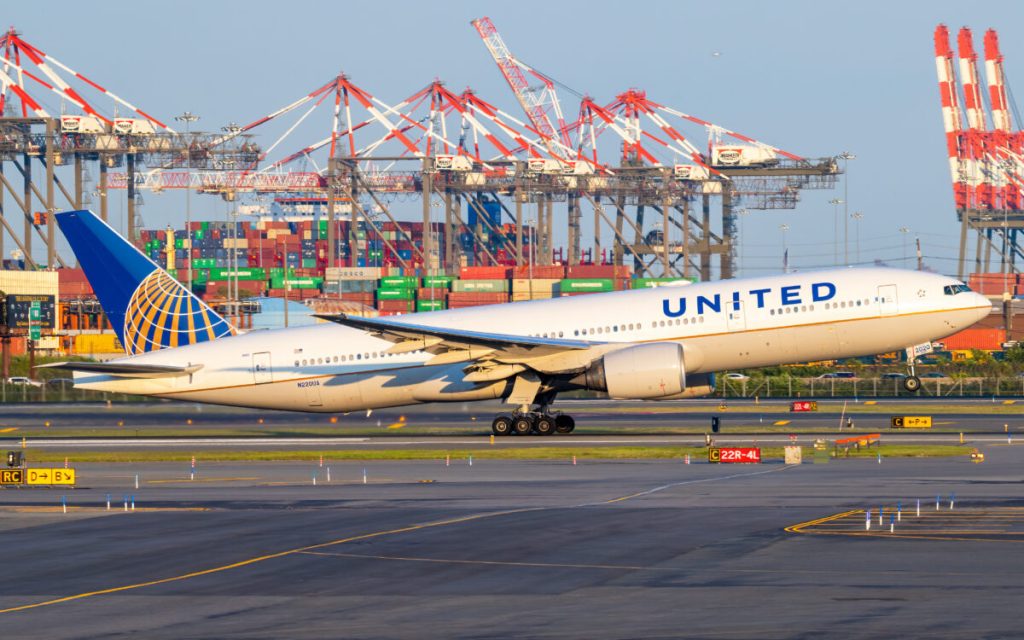
United Airlines is now in the second sudden fleet crisis. After facing the surprise grounding of select Boeing 777 aircraft that has kept most of the 777-200s out of the schedule, the airline faced another blow today with the surprise 737 MAX announcement. While the latest issue with the MAX does not affect all of the airline’s aircraft, United has pulled out a sizable number of jets from service temporarily. All of this comes as the airline navigates a vastly improved demand environment where those widebody and MAX jets support the airline’s mid-continent hubs and further domestic connections.
United’s dual fleet groundings
A story that highlighted the high standard of pilot training and preparedness for emergencies dominated the aviation scene at the end of February. A United Airlines Boeing 777, shortly after takeoff from Denver to Honolulu, suffered an engine failure.
The aircraft suffered damage after the fan inlet and cowling separated from the engine and damaged parts of the fuselage and engines. The aircraft also suffered an engine fire. As a result, the pilots elected to return to the airport and arrived in Denver safely.
In the wake of the 777 incident, United worked with Boeing, Pratt & Whitney, and the US Federal Aviation Administration (FAA) to pull out Boeing 777s from service.
The issue with the 777s is ongoing. The FAA requires aircraft outfitted with Pratt & Whitney PW4000 engines to undergo additional inspections. If there is anything that needs to be rectified, that has to be taken care of before returning to commercial service.
Then, on April 9th, Boeing announced it had recommended 16 customers to pull select 737 MAX jets from service to address a potential electrical issue. United was one such carrier impacted by the 737 MAX grounding issue. Roughly half of those jets have been removed from service pending rectification of the issue.
A hit to the fleet
The good news for United Airlines is that the issue does not affect all of the airline’s Boeing 737 MAX jets, but a fair number of United’s 777 fleet remains parked.
An analysis by Simple Flying using RadarBox.com shows that there are only around 10 Boeing 777-200s in service, including -200ER aircraft in active service. While a sizable part of the fleet was parked due to the crisis, some of the planes appear to be parked abroad undergoing cabin retrofits to feature the new Polaris and premium economy cabins. Some of the park jets include those affected by the Pratt & Whitney engine issue going out to the desert for storage.
The biggest crunch in the 777 fleet was the domestic and leisure-oriented Boeing 777 aircraft. These jets featured an eight-abreast lie-flat business class with room for up to 28 passengers. These jets also feature 336 economy seats, of which 102 are extra-legroom economy seats.
These jets are some of the workhorses for United’s flights to Hawaii, especially out of Denver and San Francisco. They also serve as large connecting aircraft between United’s hubs. For example, United has formerly used those aircraft to run flights from hubs like Houston, Chicago, and Washington D.C. to Denver.
However, some flights have seen an upgrade. For example, on select flights from San Francisco to Honolulu, United has upgraded some flights to Boeing 777-300ER-operated journeys, which represents an improvement in terms of both capacity and product. However, it appears United has added 777-200s back into the market, likely because it has more jets that have passed inspections or repairs. Do note that flight schedules are subject to change.
Sudden fleet changes are difficult to respond to
It takes an expert team of network and fleet planners to manage a crisis. United Airlines has some experience managing the Boeing 737 MAX grounding, but in this case, there are a few more variables.
United does have some of its fleet parked. While it may seem easy enough to bring those parked jets back into service, the reality is the exact opposite. Bringing planes out of long-term storage is a long process with many steps that must be done right. Failure to bring an aircraft properly out of long-term storage can lead to an inflight incident that may cause a diversion or emergency landing.
Bringing the MAX back into service has helped the airline free up additional narrowbodies to cover for the 777 groundings. The 777 groundings happened shortly after United reinstated MAX commercial services, and the MAX has been common on routes to and from mid-continent hubs.
However, this temporary MAX grounding will put some additional strain on the airline’s team. It will need to weigh the anticipated length and impact of rectifying the latest issue, which could only take a couple of days or perhaps a few weeks, and decide if it would be worthwhile to bring out parked jets.
Now, United is managing a dual 777 and 737 MAX crunch which is causing some strain in a much better demand environment. As the US consistently sees over one million passengers per day, the airline is surely hoping that all of these jets will be ready to go in time for summer, so the airline can focus on running as much capacity as possible to cater to leisure travelers who are eager to fly again.